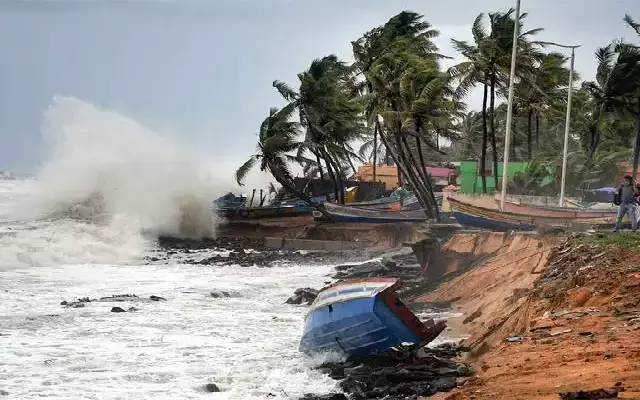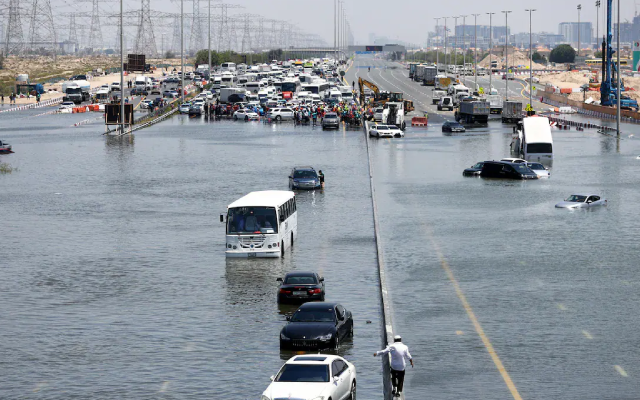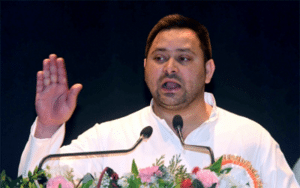
Bengaluru: At a juncture when COVID positive cases are rising by more than 150 daily, a majority of whom are inter-state returnees, mainly from Maharashtra, Karnataka Medical Education Minister K. Sudhakar told IANS that there is no data to prove that there is community transmission of the virus in the southern state.
On a positive note, the state is also witnessing a good number of patient discharges every day.
By Sunday evening, the state’s COVID tally touched 7,000 and active cases stood at 2,959. Of all the cases, 3,955 patients have been discharged, 86 died and 16 are in the ICU.
Excerpts from an interview with Sudhakar:
Q: How intense is community transmission in the state?
A: Exponential growth in the number of positive cases poses a serious threat in the state. Yet, as of now, there is no data to prove the community spread of the virus. We have observed that a majority of cases were caused due the infections spreading from migrants, especially those who returned from Maharashtra.
Of the 6,245 cases (till Thursday) in the state, 3,374, (54 percent) were those who returned from Maharashtra.
We started with putting migrants in quarantine for three weeks (one week institutional and two at home), but now we put them in 2-week home quarantine. If the person is tested positive then the house is sealed.
Q) Where is the state headed towards, in terms of controlling COVID-19?
A: As of now, we are managing well. As is evident from the mortality rate, Karnataka has the lowest nation-wide, our 4T strategy has been successful. We have leveraged technology and marshaled the multifarious government machinery to take this challenge head-on. We have built brand new dedicated COVID facilities, deployed control rooms, trained and deployed frontline staff in record time.
However, the increase in the number of COVID cases recently is largely due to the inflow of migrants from some of the hotspots like Maharashtra, Gujarat, and Tamil Nadu.
Despite the influx of potential carriers or infected persons, I believe we are doing better than other states in containing the spread of the virus.
Q) What factors are creating hurdles in Karnataka’s path?
A: There will be challenges, such as the burgeoning number of migrants coming to the state, monitoring the huge number of people quarantined at home, and managing the huge state-wide infrastructure and resources.
Q) For a while it looked like Kerala was in control of COVID, but they seem to be no different from other states now. What are your takeaways from Kerala’s situation?
A: It just goes to show there is no place for complacency in the fight against COVID. For a while, it seemed that Kerala had everything in control but it is just very difficult to control the spread if people do not follow quarantine regulations and some asymptomatic people will go under the radar.
Q) How is COVID going to impact medical education in the years ahead?
A: The impact of the coronavirus pandemic is pervasive and it has certainly affected the way medical students and teachers are viewing their education.
In one way it has caused minor disruption to final year students as clinical placements have been deferred and admissions for new students postponed, but in another way, it has demonstrated the need for improving the medical education to supply adequate healthcare professionals.
People are now seeing the importance of having a robust medical infrastructure, researchers, doctors, and paramedical personnel.
The government has ensured that those at the frontline who are taking huge risks are not worried about the mundane things such as their stipend and pay. The state government has hiked the stipend for residents and trainees and the implementation of the 7th Pay Commission for professors has been recommended.
The role of telemedicine has caught the imagination of the people and the medical fraternity alike. It could not have been better described than by our Prime Minister when he said the medical fraternity is like soldiers without uniform.
Q) As most positive cases in Karnataka now are domestic returnees, what is the state’s plan of action?
A: All returnees are being screened at the point of entry so that infected persons don’t spread the virus. All returnees from states that are the worst affected, even if asymptomatic, are being home-quarantined. Various agencies, such as the civic bodies, health department, and the home department are working in a synchronized manner to ensure there are no leaks in the net. Every home that has an infected member is sealed.
Q) Why are you not roping in private hospitals for the treatment of COVID patients?
A: We already have nearly 90,000 beds in all hospitals put together. Although there was an estimation that Karnataka would record nearly 80,000 cases by April-end, nothing like that happened.
We are gearing up to handle a rush of patients if the projection made by experts comes true. Karnataka has 84,776 beds in its districts, of which 21,728 have been reserved for COVID.
A total of 19,639 beds are available in Bengaluru Urban and Rural districts. And of these, 3,470 are reserved for COVID in the two districts.
More than 86 percent of the 21,728 beds are isolation beds – 6,695 with oxygen facilities, 2,105 ICU beds, and 1,000 with ventilators.
Of the 21,728 beds, 10,259 are in public facilities while 4,795 are in dedicated COVID treatment centers and 3,820 beds are in private hospitals.
Q) Why is the state failing to replicate the Mysuru model of arresting infections in other places?
A: Mysuru is one of the best districts in the state in terms of COVID handling. We have been exercising similar measures in all other districts and are hopeful that things will be under control in a few days.
Q) Are the rising cases every day because of increased testing?
A: As we have ramped up testing and are currently conducting more than 12,000 tests a day, we are possibly detecting positive cases faster and earlier.
Karnataka is one of the very few states to have as many as 74 dedicated COVID labs as on date.
Q) As planned, the state has achieved the target of establishing 60 COVID laboratories. Are there any more plans to increase the count?
A: Yes, thanks to our planning, we focused on a multi-pronged approach to tackle COVID. One of them was establishing 60 testing labs by May end, and we achieved that number much earlier. Today, we have 74, and based on the load and criticality we can add more.
Q) As two patients have shown good recovery signs on using plasma therapy, how is Karnataka planning to go forward with this treatment?
A: We have seen two successful cases recovering from plasma therapy. It is a very effective method for a certain category of patients and we will employ this therapy for them.
The idea behind this therapy is that immunity can be transferred from a healthy person to a sick patient using convalescent plasma. This therapy uses antibodies from the blood of a recovered coronavirus patient to treat another critical patient.
The recovered COVID patient’s blood develops antibodies to battle against COVID. Once the blood of the first patient is infused to the second patient, those antibodies will start fighting against coronavirus in the second person.
Q) As we are seeing many new infections every day, does the government fear to strain the medical infrastructure beyond its capability in the state?
A: Karnataka is well poised to handle a spike in COVID infections. With 31 hospitals, 578 health care centers apart from the dedicated private facilities, the state has adequate infrastructure.
We have 86,465 beds, 4,395 ICU beds, 1,939 ventilators beds, and 18,175 beds with oxygen lines. We have an additional 2,105 ICU beds that have ventilator support.
Q) Is it true that people with symptoms of ILI and SARI are more vulnerable to COVID infection? If so, what steps are taken to address this?
A: Yes, people with symptoms of Influenza-Like Illness (ILI) and Severe Acute Respiratory Infection (SARI) are more vulnerable to COVID infections.
We have advised all persons with ILI and SARI symptoms to immediately visit fever clinics and get tested and those above 60 years to stay indoors as much as possible.
Those taking care of the elderly have been asked to monitor their wards for any symptoms and get medical help should there be any signs.
Q) Experts are predicting a surge in coronavirus cases in Karnataka after August 15. Is the government prepared to handle the peak?
A: The expert committee report says that there will be a surge in corona cases around the end of August. But we are well prepared for the worst-case scenario. We will continue to work on our 4T strategy that has been successful so far.
If need be, we will augment our resources from the test labs to other infrastructure to take on the surge.


















